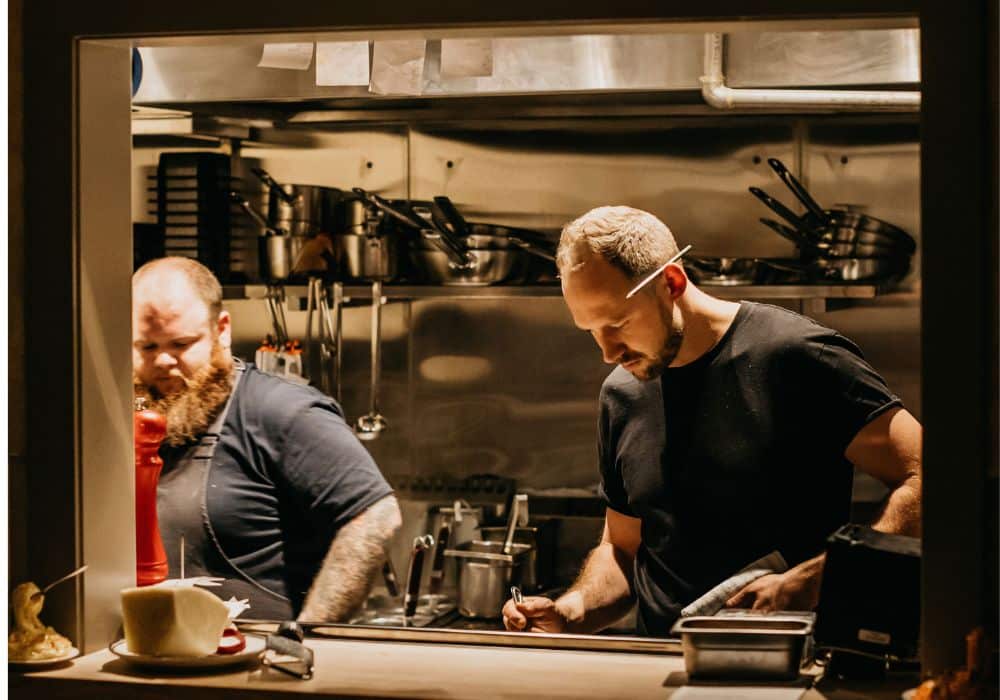A business partner in the Love Tilley Group, Scott is a chef at Regazzi and La Salut. Fine Food Australia caught up with the busy chef just after he landed back in Australia.
How was Europe?
Busy. Really busy. The Europeans make the most of summer, and the cities were full. Especially on weekends when people make the most of their trains and planes and head to tourist destinations. What struck me as unusual was how the French, who are typically incredibly health conscious, had turned their backs on wearing masks while the Catalans were all masked up.
Did you notice any trends?
Cash is no longer king. Hospitality has been one of the great last vestiges of the cash economy. Over the past few years since I was last here, most restaurants and bars have moved to card-only payment. This is something we are instituting in our venues in Sydney. Cash needs counting, and that is labour. Add up the hours and cashing up at the end of a shift can cost a business around $6000 a year in wages. In Europe, where they do take cash, customers feed the notes into machines by the point of sale, so staff do not handle notes.

You opened La Salut in Redfern last year with a big nod to Barcelona. How did that come about?
I was working at MoVida in Melbourne in 2015 and left to do stage in Barcelona. I worked at a place called Els Tres Porquet serving classic Catalan food served in a cool but classic restaurant amidst the high rises. Then I went to country to work at Els Casals, a restaurant on a 700-year-old family farm housed in a 400-year-old farmhouse in the foothills of the Pyrenees where they kill 12 pigs a week and make sobrasada (a raw sausage with loads of smoky paprika) served this with local honeycomb. La Salut is my homage to the bars of Barcelona, embracing the dishes from that part of Spain – clams, beans, jamon, loads of seafood, simple, beautiful traditional food. For the Catalans, bars are very important cultural places; they talk about them the way we follow football teams. They are always talking about food.

What about your Italian restaurant Regazzi Wine and Pasta?
We were open just six months when COVID hit. It was a very crap time that we made the most of. We had some foreign staff members, and we needed to find something to do. So we developed a packaged pasta brand called Fabricca. That thought bubble became a business and Fabbrica Pasta Shop now employs a dozen full-timers working over two sites making wholesale pasta for Regazzi and other restaurants that don’t have the staff to make their own pasta. Yes, pasta is a low food cost product, but it requires a lot of labour. That is something that restaurants and cafes do not have a lot of at present. What Fabbrica does is allow those businesses to put on fresh, handmade pasta without having to tie up a pair of hands making it before service. The business has expanded rapidly, and we are in a lot of supermarkets now and Fabricca will get bigger and bigger. This started purely because I wanted my guys to do something during lockdown.

What has been the best thing to happen to you recently?
My son! He was born in December 2020, and because of lockdowns, I was able to spend a lot of time with him. I wouldn’t get to that normally. Every cloud has a silver lining.
Image credit: Nikki To, Trent Van Der Jagt
Written by: Wendy Hargreaves

